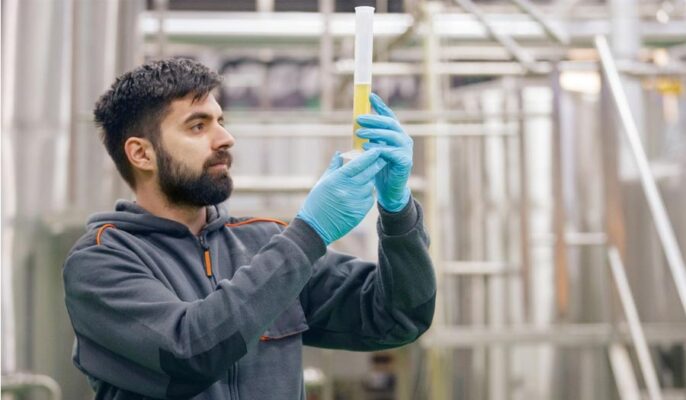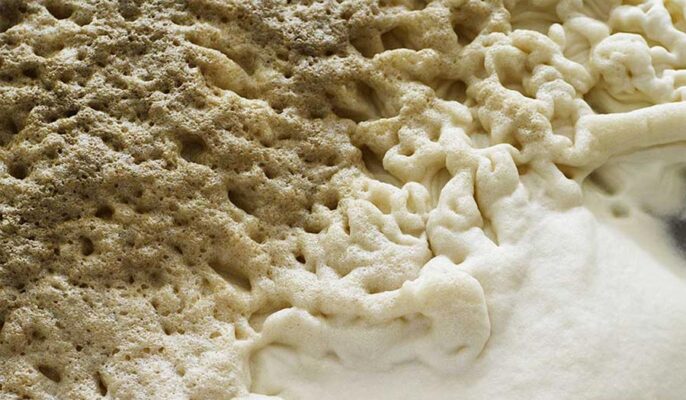High-gravity brewing can increase brewery capacity without investing in brewery, tank or filter capacity. When considering high-gravity brewing in brewery operations, it is important to understand the pros and cons. If you’re still figuring out what gravity means in beer, it helps to have a thorough definition and explanation so you can understand what high gravity means in beer, which is what beer lovers care about. Gravity in beer has to do with both the ingredients you add to the beer and the final alcohol content at the end of fermentation. In this article, we’ll explain what gravity brewing is, along with the pros and cons of gravity brewing.
What is High Gravity Brewing?
High gravity brewing is a term that refers to the process of preparing a thick wort with a high original gravity, designed to produce a beer with high alcohol content. Normal wort strength is in the 10°–13° Plato range, resulting in a beer with an alcohol content by volume (ABV) of 4%–6%. A high gravity wort is generally considered to be in the 14°–17° Plato range and will yield a beer of 6%–8% ABV. Very gravitational worts have a solids content greater than 17°Plato and have an alcohol content greater than 8%.

High Gravity Brewing Method
Wort dilution
Reconstitution of gravimetric worts or worts fermented with water can be done at almost any stage of the brewing process. The later you add the water, the greater the increase in brewing power. The quality of the dilution water used is critical and depends on the point of addition. The later the process takes place, the higher the quality requirements. Wort dilution is also very easy to manage as you can take a sample very , do a quick dilution and dilute the amount you need and then do it. Adjusting bitterness is easy because you can go to your own lab or a third-party lab for a quick test and then make sure your IBU is also within spec. a dilution of around 10% to 30% is enough.
Beer dilution
Another way of doing high gravity brewing is like what the major large breweries do. What the big breweries do is they’ll brew beer that’s seven percent, eight percent, or nine percent, and they usually don’t add hops. They’ll ferment it out, and then on the way to the packaging line or the bright beer cans, they actually dilute the beer with water. This is in contrast to diluting the wort with water.
Pros and Cons of High Gravity Brewing
Optimizing the brewing process and improving efficiency has become the top priority of many beer companies around the world. High-strength brewing is one way to achieve these goals.
The manufacturing industry is always looking for ways to reduce capital expenditures, labor replenishment, utilities and other operating costs while ensuring that product quality remains at a high level. The wine industry is no exception. One of the ways to achieve these goals is high-strength brewing. Additionally, other brewing programs in the brewing industry focus on:
- Increase fermentation rate and final fermentation rate
- High-quality yeast vigor and vitality
- Reduced production time, including novel yeast strains
- More effective beer stabilization and filtration
- Improve beer quality and stability
Advantage
High-gravity brewing also allows great flexibility in the types of beer available for sale. High-concentration brewing can reduce water consumption in wineries, and can meet increased production needs without expanding existing brewing, fermentation, and storage equipment. Brewers can produce many different products with different original spirits and alcohol content from a single high-strength beer, and there is no need to maintain separate inventories for each beer type.
Shortcoming
The high-strength brewing process also has many disadvantages. Brewery productivity (efficiency in extracting soluble matter from malt and other grains) is reduced due to the use of higher concentrations of wort. Moreover, during the wort boiling process, the use rate of hops will be reduced, and the foam stability of the final diluted beer will be reduced, and even the flavor of beer will change. Higher concentrations of wort and increased ethanol content may affect the performance of yeast strains.


High-quality yeast for high concentrations
When aiming for a high-strength beer, you want to make sure to choose a yeast with a high alcohol tolerance. Too low a tolerance can cause the yeast to become overstressed, stalling the fermentation and even resulting in having to throw away an otherwise perfect batch. You’ll also want to make sure to add extra yeast. Lower specific gravity beers will usually only need one pack, while higher specific gravity beers may must two or even three packs of dry yeast to complete fermentation.
What if the final gravity is too high?
If the final gravity is too high, meaning the beer still has a lot of undissolved solids, it may be that the beer hasn’t finished fermenting.
If the fermentation stalls, consider stirring the wort to reinvigorate the yeast, or re-add fresh yeast with a sourdough starter.




